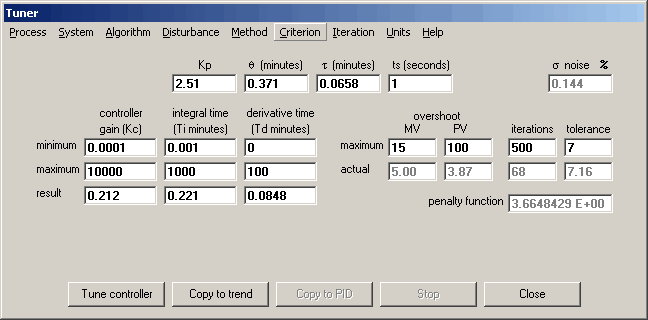
This can be applied to real controllers as well as being used as a training aid. It supports the leading DCS-specific versions of the PID algorithm. It is required by all modules but can also be used standalone. When used on a real process, it calculates tuning constants from user entered plant test results. It includes a variety of published and proprietary tuning methods and permits the user to explore the impact of changing process dynamics, scan interval, controller type and disturbance type.
It supports both self-regulating and integrating processes.
The range of PID algorithms includes both "interacting" ("series") and "non-interacting" ("parallel" or "ideal"). Controllers can be tuned as proportional only, integral only, proportional plus integral or full PID. Proportional and derivative actions can be based on either error or process measurement. Controller tuning can be derived for both set-point changes or load disturbances. Tuning constants can be derived in any of the commonly used engineering units.
Using the trend facility, responses to both set-point changes and process disturbances can be explored. The user can modify the tuning, for example to compare the recommended constants with those currently used by an existing controller. The impact of measurement noise can also be evaluated.

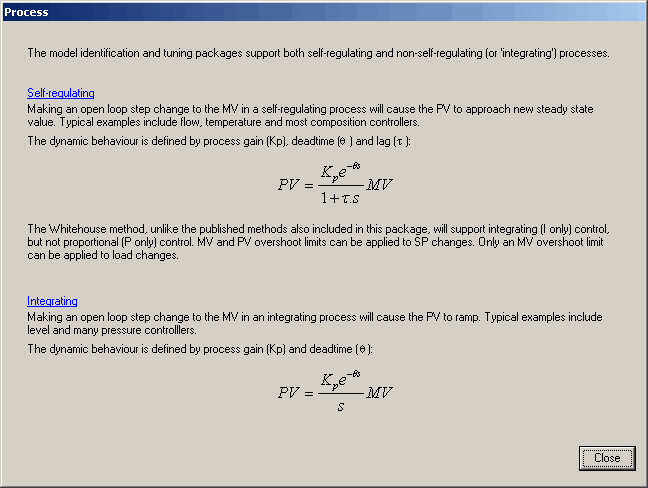
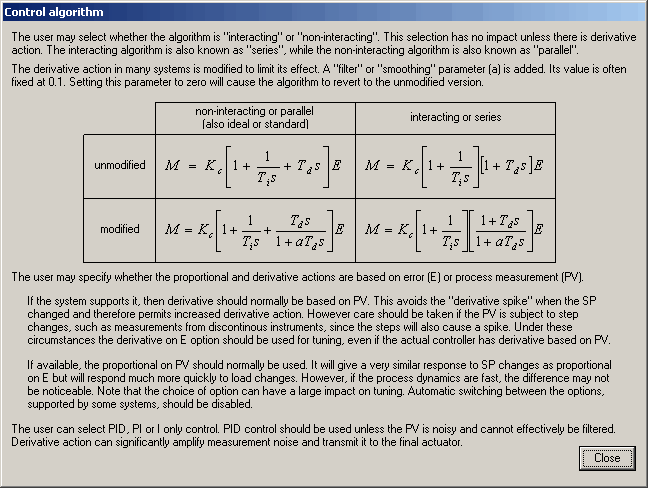
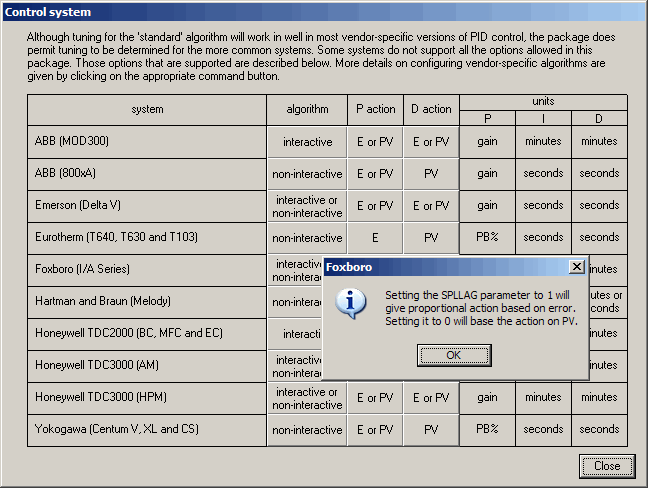
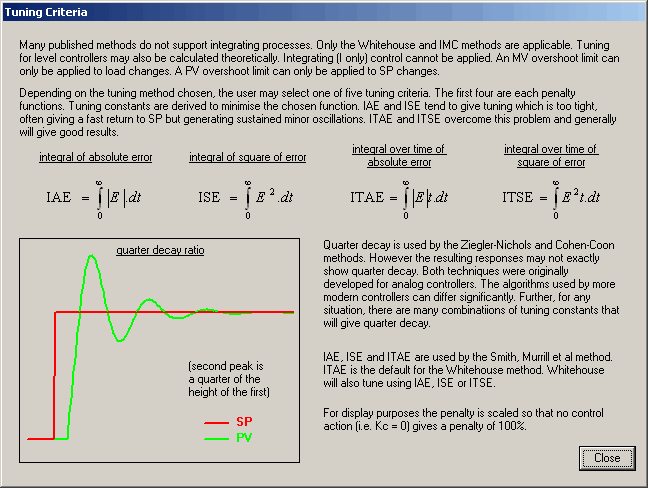
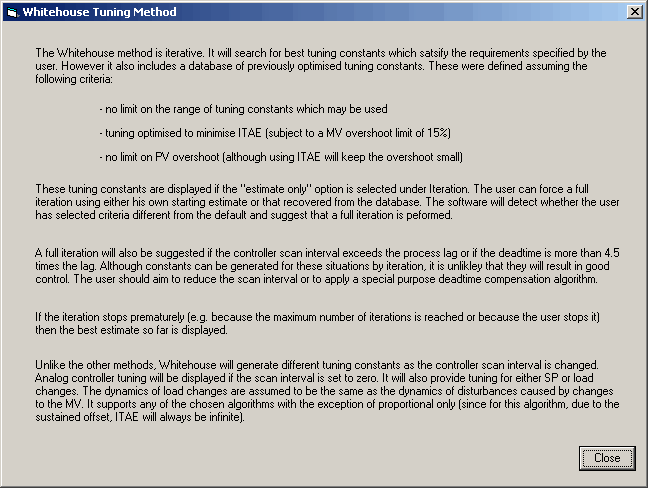
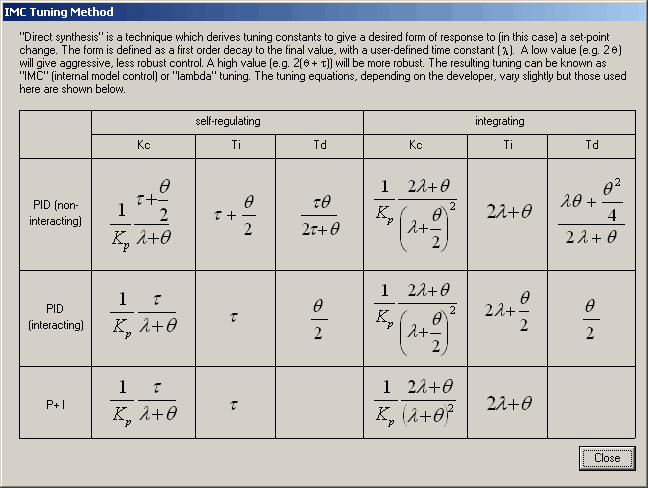
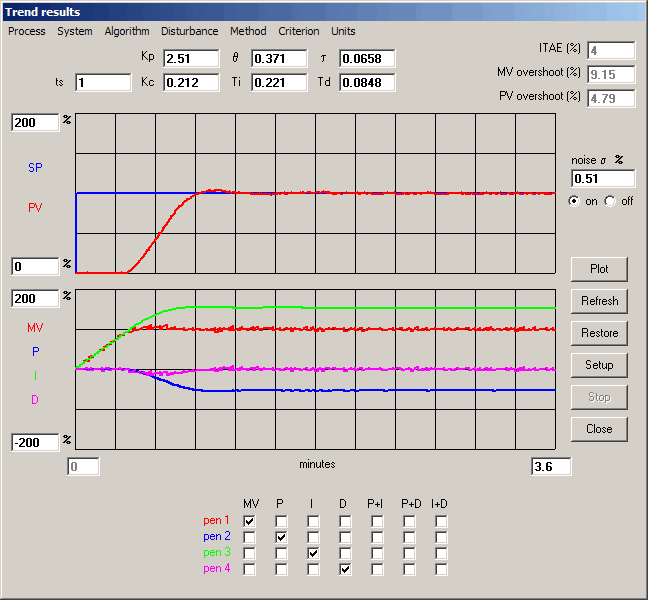
Next (Multiiple PID Tuner)
Back to Toolkit
Tuning a PID controller